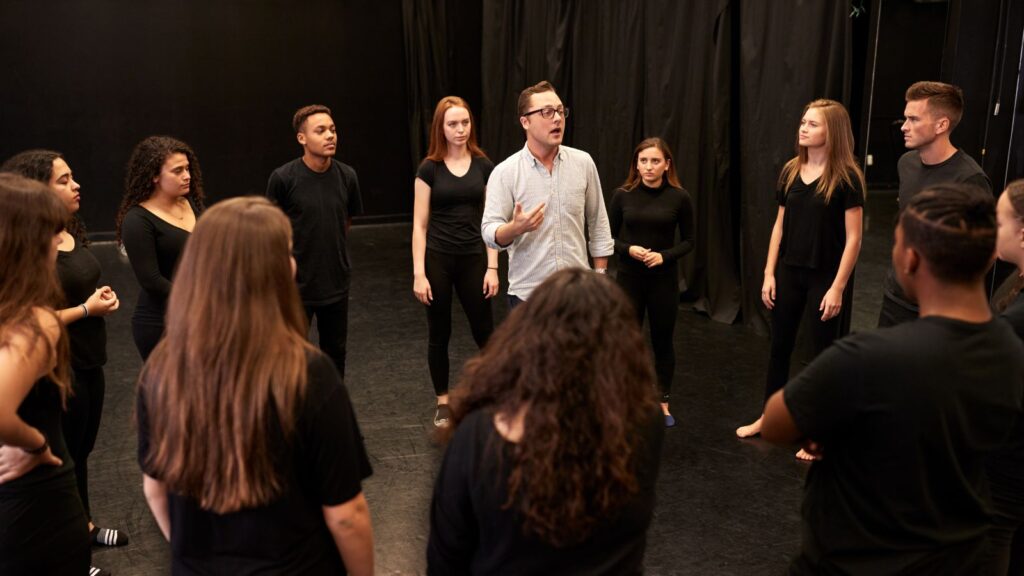Choosing the right college degree is crucial for your future career prospects. Not all degrees are created equally, and some college majors may not provide the return on investment that students expect, often leading to limited job opportunities, low salaries, and a burden of debt. Let’s take a look at 18 college degrees that are considered less valuable in today’s job market.
English

English majors develop strong writing and analytical skills. Still, the job market for these skills is already pretty saturated, and many English graduates end up in unrelated fields or need to study further in order to specialize in a particular area, leading to further debt and more time stuck in academia.
Art History

As interesting and sophisticated as it sounds, art history is a niche field with few job opportunities. Degrees like this qualify students for positions in museums and galleries or as creative directors, but these jobs are scarce and highly competitive, often requiring advanced degrees and extensive experience.
Ethnic Studies

Though important, ethnic studies degrees do not directly lead to many job opportunities. Graduates may need to double major or pursue further education to improve their employability, meaning that they can get trapped in further education, racking up more debt with no guarantee of employment.
Communications

A communications degree covers a wide range of topics but lacks depth in any particular area. Many jobs in this field do not require a specific degree. They can be filled by candidates with various backgrounds, meaning graduates are up against massively increased competition with no specialization.
Performing Arts

Although the value of the arts cannot be underestimated, acting and other performing arts degrees do not necessarily lead to successful careers. Many actors make it without formal education or training, and the industry is highly competitive, with few job openings. So a performing arts degree is a risky choice, and the only thing that you are guaranteed at the end is a lot of student debt.
General Studies

This degree lacks focus and specialization, making it hard for graduates to stand out in the job market, and employers often prefer candidates with more specific qualifications, so this is another risky degree choice with a lower guarantee of employment than other options.
Criminal Justice

Inspired by TV shows, many students pursue criminal justice without realizing the job market is limited and competitive. Many positions require additional training or education beyond a bachelor’s degree, which can result in years dedicated to academia, and debt accumulation.
Anthropology

While fascinating, anthropology degrees often require advanced studies to be viable in the job market, and Bachelor's degree holders may struggle to find relevant and well-paying positions. Plus, not a lot of people even know what anthropology is, and you’ll likely have to explain yourself multiple times and may even have to justify your degree choice, which, over time, can become frustrating, especially in social situations.
Philosophy

Philosophy is an intellectually rewarding and stimulating field that definitely has a place in the world, as we always need inquisitive minds who are prepared to question and challenge the status quo. But, philosophy has limited direct career paths and most philosophy graduates end up teaching it, pursuing further studies, or shifting to unrelated career fields.
Archaeology

Like anthropology, archaeology requires extensive education and offers limited job opportunities. Many positions are academic or research-based, making it hard to secure a job with just a bachelor's degree.
Tourism

A tourism degree may seem appealing, but many jobs in this field do not require a formal education. The industry often values practical experience, like customer service training, over academic qualifications.
International Studies

A degree in international studies provides broad knowledge about global issues but lacks direct career pathways, so most graduates may need to specialize further or pursue higher education to find good job opportunities.
Sociology

Sociology provides valuable insights into human behavior but often requires a master’s or Ph.D. to secure a job as a sociologist. Plus, entry-level jobs are limited and may not be well-paying.
History

A history degree offers deep knowledge of the past but few direct career paths. Most professional historians need advanced degrees, and teaching positions are competitive and limited.
Advertising

With the digital age transforming the marketing landscape, traditional advertising degrees have lost much of their value. Many advertising skills can now be learned via online courses and practical experience, making a formal degree less necessary.
Liberal Arts

Liberal arts degrees are often criticized for their broad and non-specialized nature, which can make finding a job challenging, and graduates often need additional qualifications to compete in the job market.
Music

A degree in music does not guarantee a stable career, and many successful musicians do not hold formal degrees and instead rely on natural talent and experience. The high cost of music education can outweigh the benefits in terms of job prospects and salary, making this a risky degree choice.
Creative Writing

While creative writing hones valuable skills, making a living as a writer is tough, and most successful writers do not hold formal degrees and instead come to this career out of a passion for the written word. Well-paying jobs in this field often require extensive experience, which can be difficult to acquire, especially as a new graduate. There is no guarantee of success with this degree choice, only student debt.
Making the Right Choice

The lack of career prospects and return on investment demonstrated by these degrees highlights the importance of making the right choice when choosing a college major. While passion is essential, practicality should also play a key role in the decision-making process, and it’s a good idea to investigate the employability factor that a degree will give you, along with the current employment prospects in that field.
30 Traditional Sayings That Are Now Considered Offensive by Woke Culture

30 Traditional Sayings That Are Now Considered Offensive by Woke Culture
21 Habits Often Associated With Having a Lower Social Status

21 Habits Often Associated With Having a Lower Social Status
25 Social Issues Gen Z are Determined to Cancel

